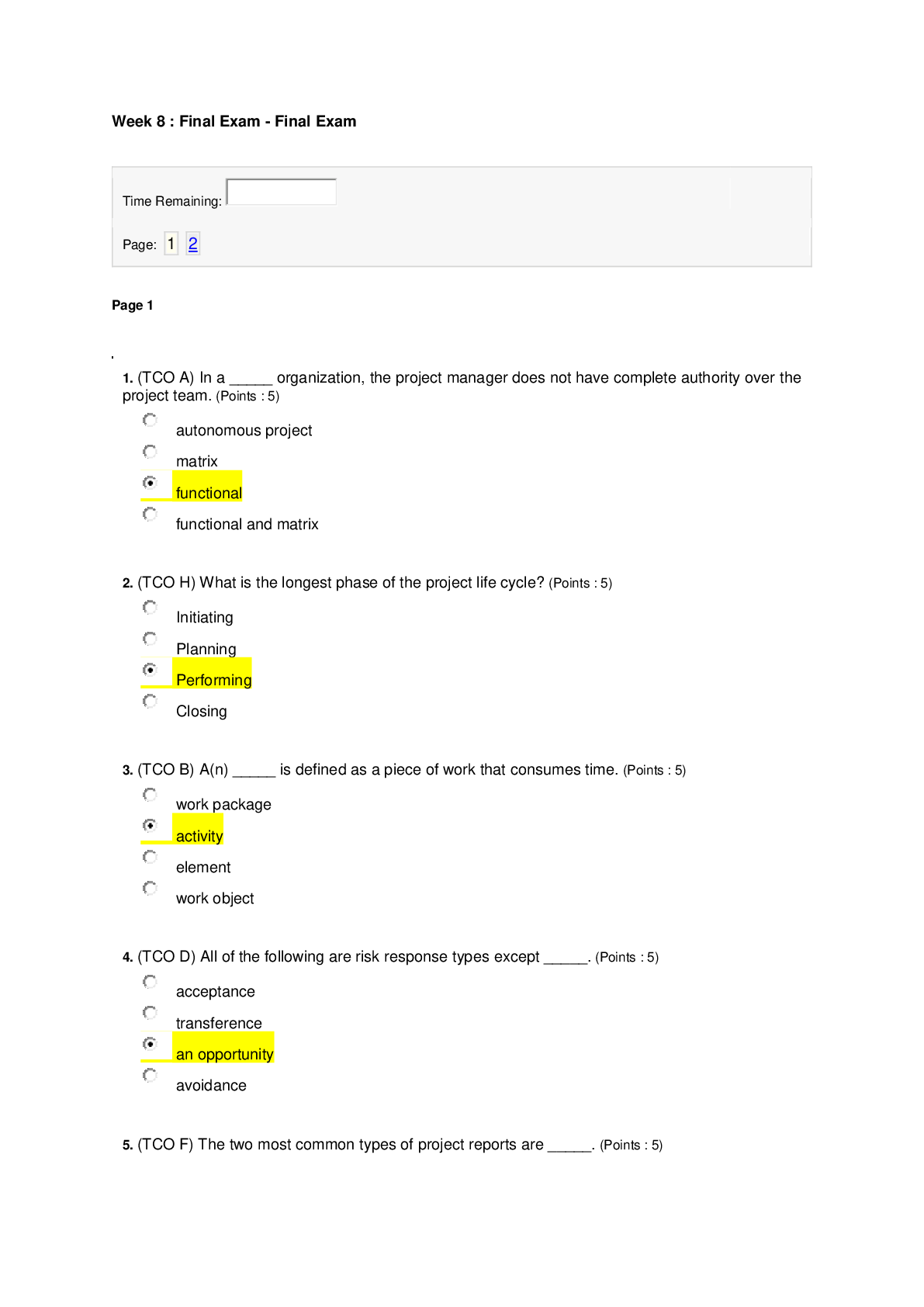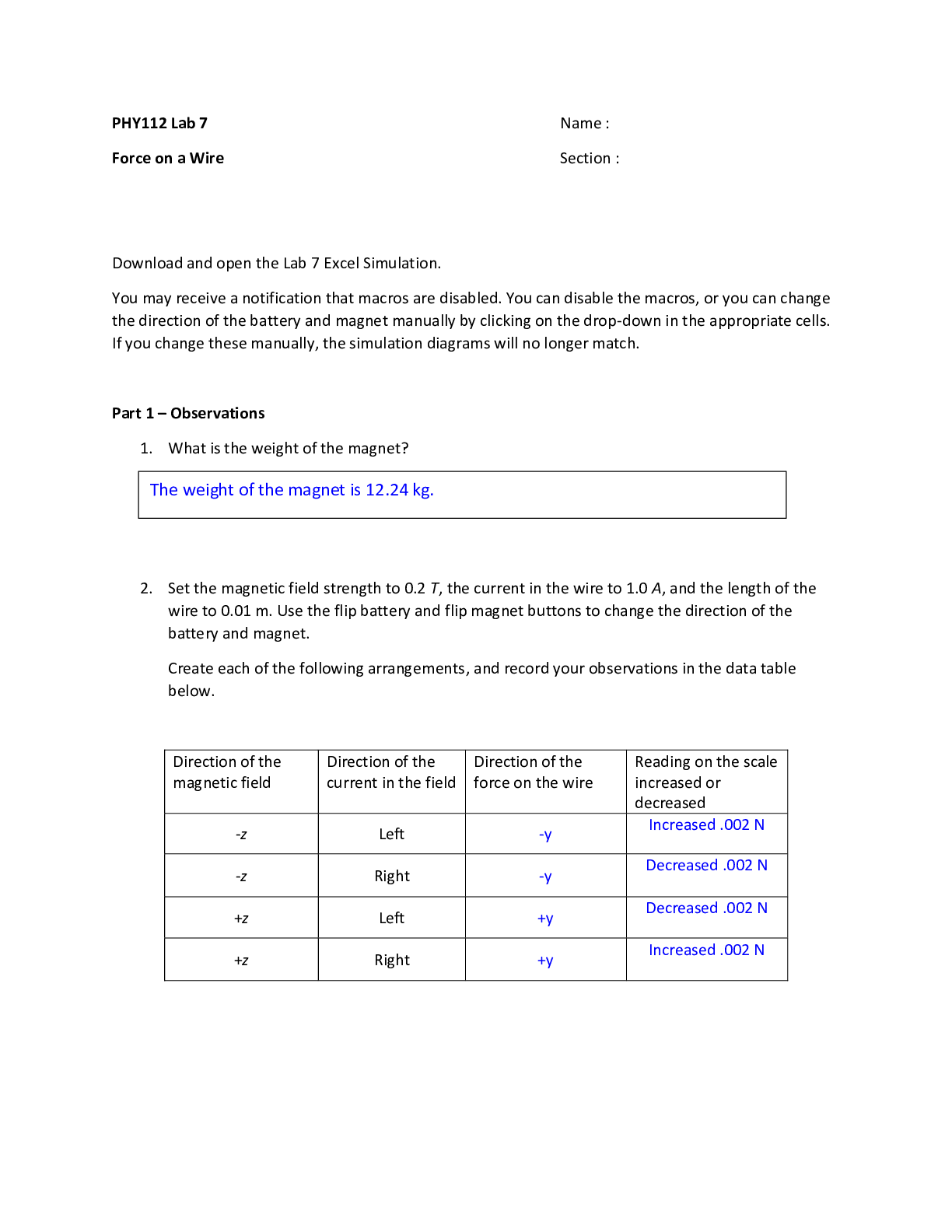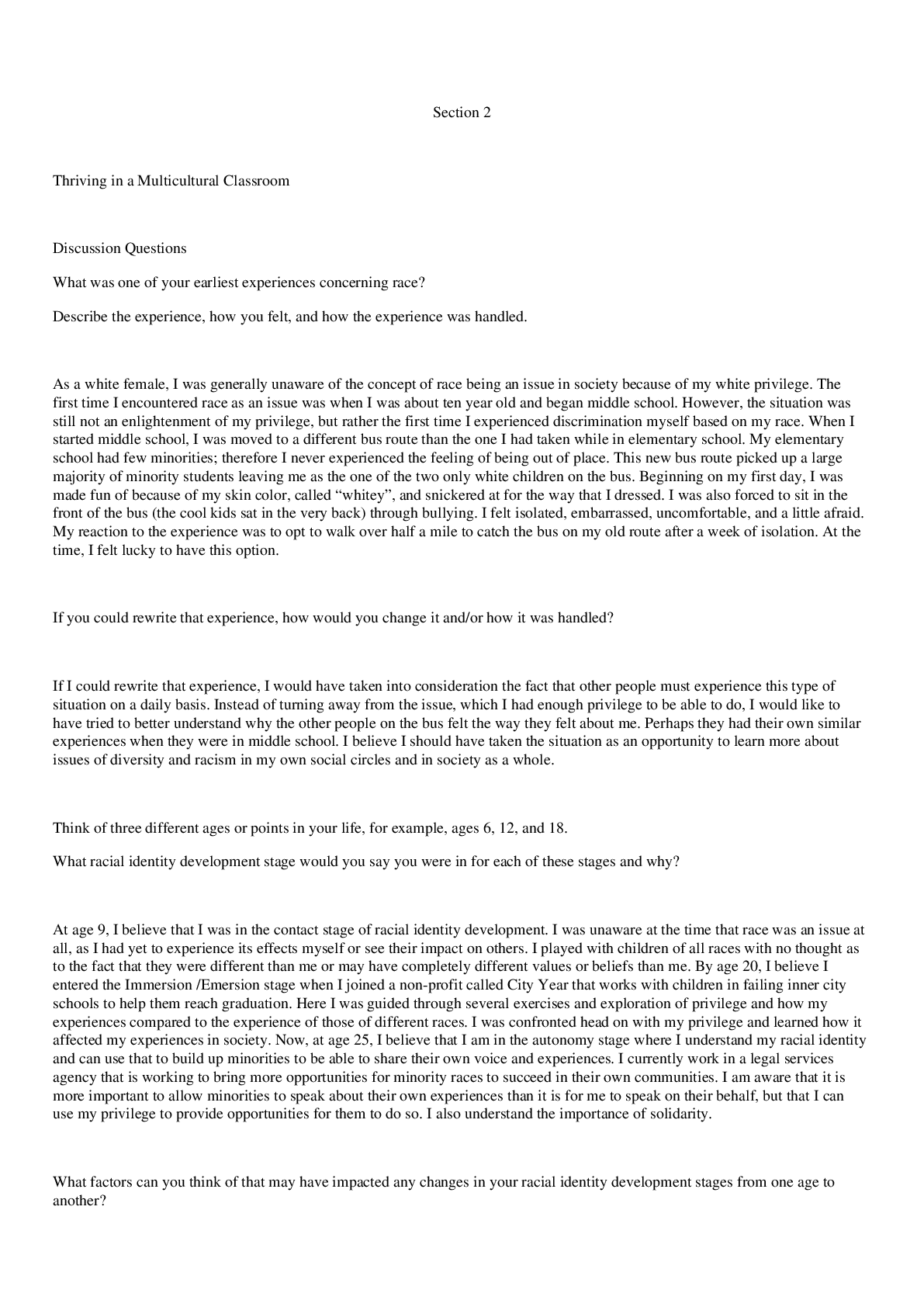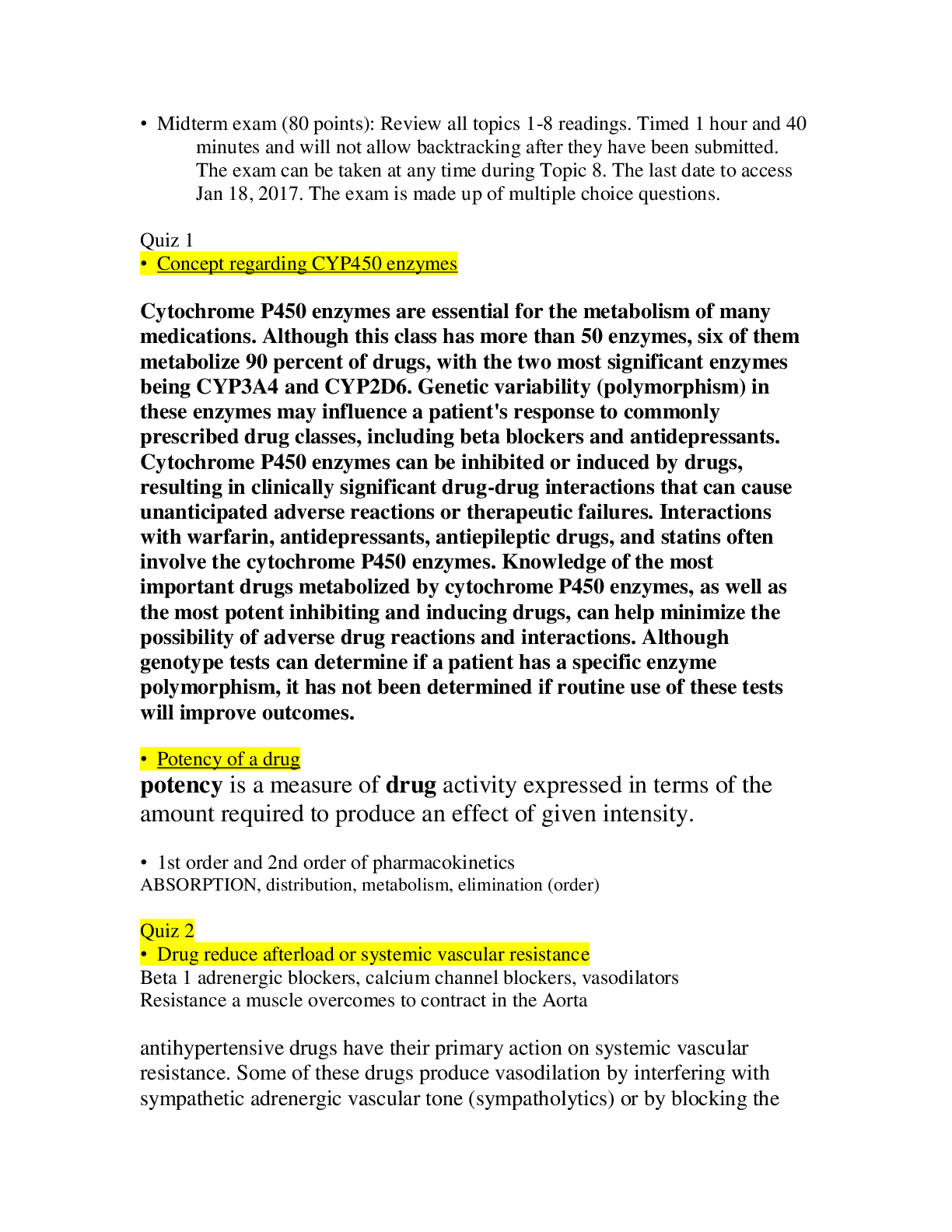*NURSING > STUDY GUIDE > PEDS NR 328 latest-exam-1-study-guide_chamberlain-college-of-nursing_score-A (All)
PEDS NR 328 latest-exam-1-study-guide_chamberlain-college-of-nursing_score-A
Document Content and Description Below
INTRO TO PEDIATRICS/FAMILY/CHRONIC ILLNESSES: ● Describe atraumatic care o Eliminating or minimizing the pain and/or psychological stress of receiving care ▪ 3 Principles: ● Prevent or minimi... ze child’s separation from family o Allowing parents present during a code; performing an assessment while child is in parent’s arms ● Promote a sense of control o Give them choices, choices we can live with; meds before or after bath, before or after meals; how they take meds—syringe or PO; where and how to do an intervention, not if an intervention should be done ● Prevent or minimize bodily injury and pain o Do labs now or in morning, combining sticks ● Identify the essential elements of the transition to parenting o Parental age ▪ 18-35 “ideal” age ● 30-44 yrs is on the increase ● 20-29 yrs is on the decrease o Father involvement ▪ Or another involved adult; another man; non-biological father; same-sex relationships o Parenting education ▪ How prepared were the parents? Baby classes? Books? ▪ Education level? High school or college education? o Support systems ▪ Internal resources ● Internal ability to adapt to change easily. Can they cope well to a chaotic environment? ● Experience with other children? ● Stress level before the child was there? ● Kiddos temperament? High needs child? ● Marriage or relationship quality? ▪ Coping strategies ● Coping mechanisms ● Antidepressant drugs o Other factors ● Describe the role that effective discipline plays in a child’s development o Discipline needs to be developmentally appropriate not necessarily ‘age’ appropriate o TIMING o COMMITMENT o PLANNING o Children want/need limits set for them even in hospital setting o Children need encouragement and modeled appropriate behavior whether child is ill or not o Need CONSISTENCY between caregivers o Before child reaches 4,5 and 6 years of age when a child may experience embarrassment—child should be disciplined in PRIVATE o FLEXIBILITY/PLANNING—need a plan but plan may not be right for particular incidence; plan may not be right for every child o BEHAVIOR ORIENTATION—behavior is bad, not the child o TERMINATION—when the crime has been done and the punishment paid, DO NOT continue to bring it up. It’s over and done with ● Stages of divorce o Acute Phase ▪ Make the decision ▪ Legal steps o Transitional Phase ▪ Unfamiliar roles and relationships ▪ Many changes ● Living arrangements ● Decreased standard of living 1 Stuvia.com - The Marketplace to Buy and Sell your Study Material Stuvia.com - The Marketplace to Buy and Sell your Study Material o Stabilizing Phase ▪ Reestablish a functioning family unit ● Effects of divorce—listen to podcast again o Infancy: change in sleeping and eating patterns, irritable o Early preschool (2-3): frightened, confused, fear of abandonment, aggressive behaviors o Later preschool (3-5): blames themselves, fear of abandonment, aggressive towards others o Early school age (5-6): depression, loss of appetite, increase anxiety o Middle school age (6-8): strong sense of panic, angry at one or both of parents o Later school age (9-12): have a better understanding of what is happening, embarrassed, intense [Show More]
Last updated: 2 years ago
Preview 1 out of 36 pages
_removed.png)
Buy this document to get the full access instantly
Instant Download Access after purchase
Buy NowInstant download
We Accept:

Reviews( 0 )
$9.00
Can't find what you want? Try our AI powered Search
Document information
Connected school, study & course
About the document
Uploaded On
Apr 25, 2021
Number of pages
36
Written in
Additional information
This document has been written for:
Uploaded
Apr 25, 2021
Downloads
0
Views
118

























